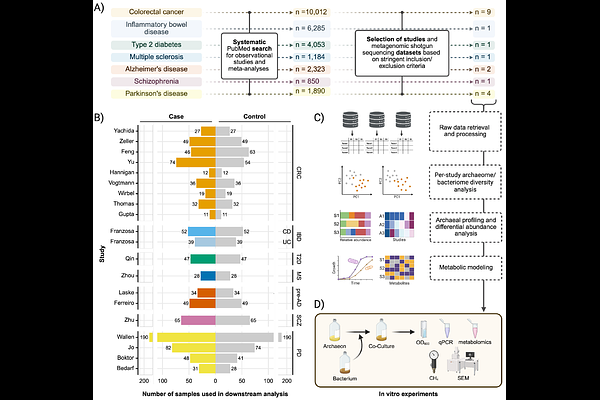Methanobrevibacter smithii associates with colorectal cancer through trophic control of the cancer bacteriome

Methanobrevibacter smithii associates with colorectal cancer through trophic control of the cancer bacteriome
Mohammadzadeh, R.; Mahnert, A.; Zurabischvili, T.; Wink, L.; Kumpitsch, C.; Habisch, H.; Sprengel, J.; Filek, K.; Mertelj, P.; Pernitsch, D.; Hingerl, K.; Gorkiewicz, G.; Diener, C.; Loy, A.; Kolb, D.; Trautwein, C.; Madl, T.; Moissl-Eichinger, C.
AbstractThe human gut is colonized by trillions of microbes that influence the health of their human host. Whereas many bacterial species have now been linked to a variety of different diseases, the involvement of Archaea in human disease remains elusive. Here we searched for gut archaeal signatures of disease by screening 19 cross-sectional clinical studies comprising more than 1,800 individuals. We found that associations between Archaea and medical disorders are common but highly variable and are dominated by a significant increase of Methanobrevibacter smithii in colorectal cancer (CRC) patients. Metabolic modelling and in vitro co-culture identified distinct mutualistic interactions of M. smithii with CRC-causing bacteria such as Fusobacterium nucleatum, including metabolic enhancement. Metabolomics further revealed archaeal-derived compounds with tumor-modulating properties. This provides the first mechanistic link between human gut archaeome and CRC and highlights its role in modulating health in humans through trophic control of the resident bacteriome.